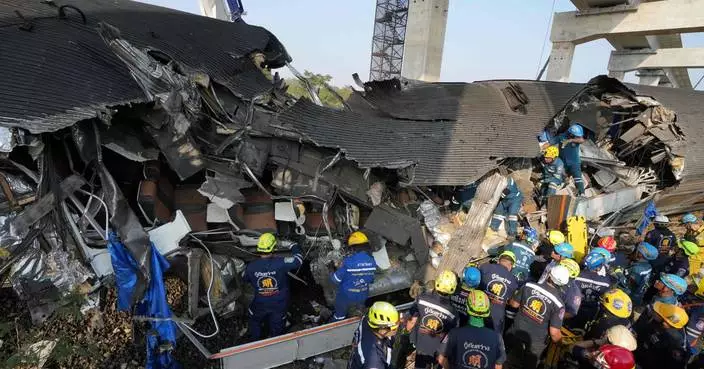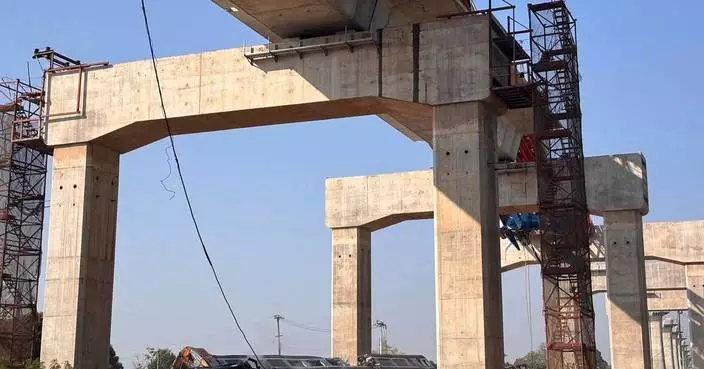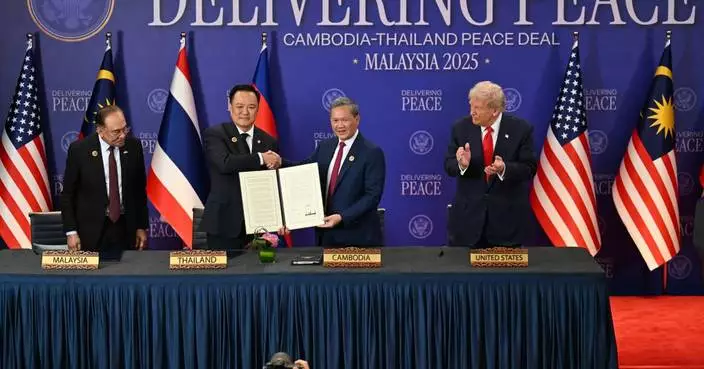An eminent monk in Wat Tako monastery in Thailand passed away three months ago and his dead body miraculously remains unrotten after 100 days from his death.
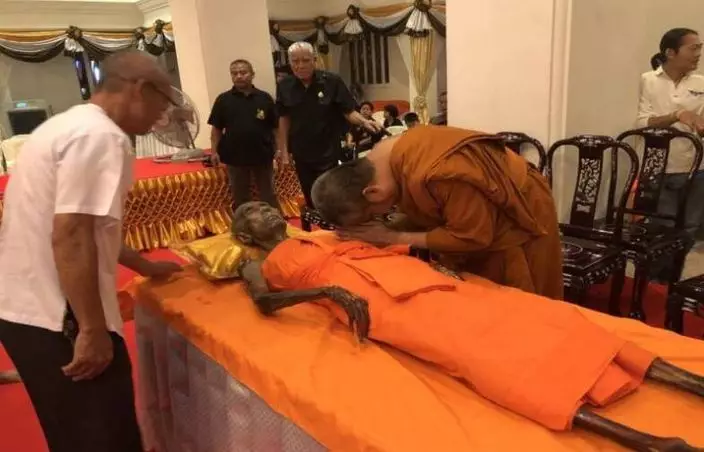
Following Buddhist tradition, disciples of the eminent monk organized a memorial ceremony for him on the 100th day since he died. They opened the coffin intending to dress him in a religious robe and found his body was naturally mummified. The body was all well in shape but the skin had contracted and darkened a little. The eminent monk looked peaceful as if he was just sleeping.
Buddhist expert explained that the natural mummification was due to the fact that the eminent monk had absorbed enough energy from praying when he was alive, hence the body would not be affected by the outside world or decompose by bacteria even after he had passed away.
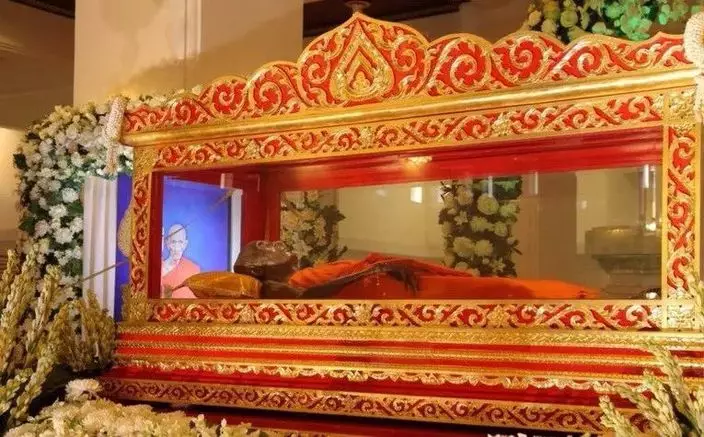
NUUK, Greenland (AP) — President Donald Trump said Wednesday that anything less than U.S. control of Greenland is unacceptable, hours before Vice President JD Vance was to host Danish and Greenlandic officials for talks.
In a post on his social media site, Trump reiterated his argument that the U.S. “needs Greenland for the purpose of National Security.” He added that “NATO should be leading the way for us to get it” and that otherwise Russia or China would.
“NATO becomes far more formidable and effective with Greenland in the hands of the UNITED STATES,” Trump wrote. “Anything less than that is unacceptable.”
Greenland is at the center of a geopolitical storm as Trump is insisting he wants to own the island — and the residents of its capital, Nuuk, say it is not for sale. The White House has not ruled out taking the Arctic island by force.
Vance is to meet Denmark’s foreign minister Lars Løkke Rasmussen and his Greenlandic counterpart Vivian Motzfeldt in Washington on Wednesday to discuss the island, which is a semiautonomous territory of the United States’ NATO ally Denmark.
Ahead of the meeting, France’s foreign minister denounced what he described as U.S. “blackmail” over Greenland in the latest sign of irritation among America's allies.
Along the narrow, snow-covered main street in Nuuk, international journalists and camera crews have been stopping passersby every few meters (feet) asking them for their thoughts on a crisis which Denmark’s prime minister has warned could potentially trigger the end of NATO.
Tuuta Mikaelsen, a 22-year-old student, told The Associated Press in Nuuk that she hoped American officials would get the message to “back off."
Greenland's Prime Minister Jens-Frederik Nielsen told a news conference in the Danish capital Copenhagen on Tuesday that, "if we have to choose between the United States and Denmark here and now, we choose Denmark. We choose NATO. We choose the Kingdom of Denmark. We choose the EU.”
Asked later Tuesday about Nielsen's comments, Trump replied: “I disagree with him. I don’t know who he is. I don’t know anything about him. But, that’s going to be a big problem for him.”
Greenland is strategically important because as climate change causes the ice to melt, it opens up the possibility of shorter trade routes to Asia. That also could make it easier to extract and transport untapped deposits of critical minerals which are needed for computers and phones.
Trump also said he wants the island to expand America’s security and has cited what he says is the threat from Russian and Chinese ships as a reason to control it.
But both experts and Greenlanders question that claim.
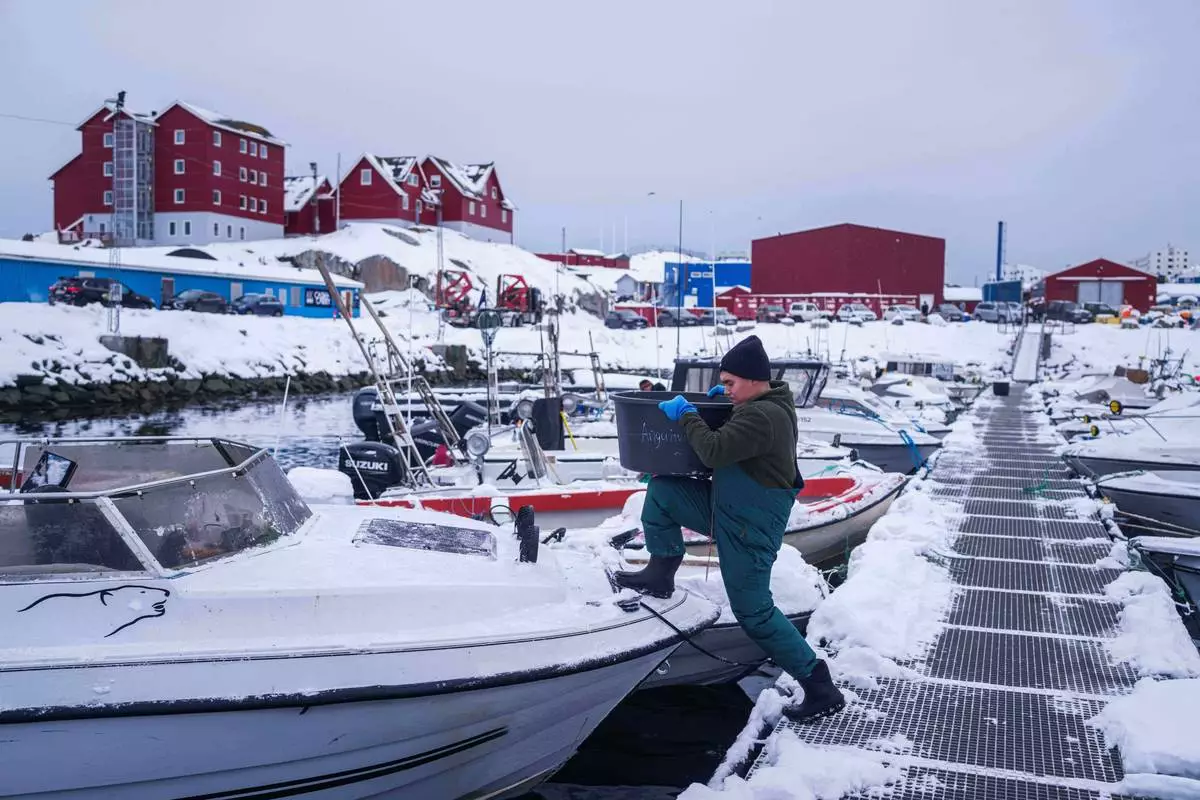
A fisherman carries a bucket onto his boat in the harbor of Nuuk, Greenland, on Tuesday, Jan. 13, 2026. (AP Photo/Evgeniy Maloletka)
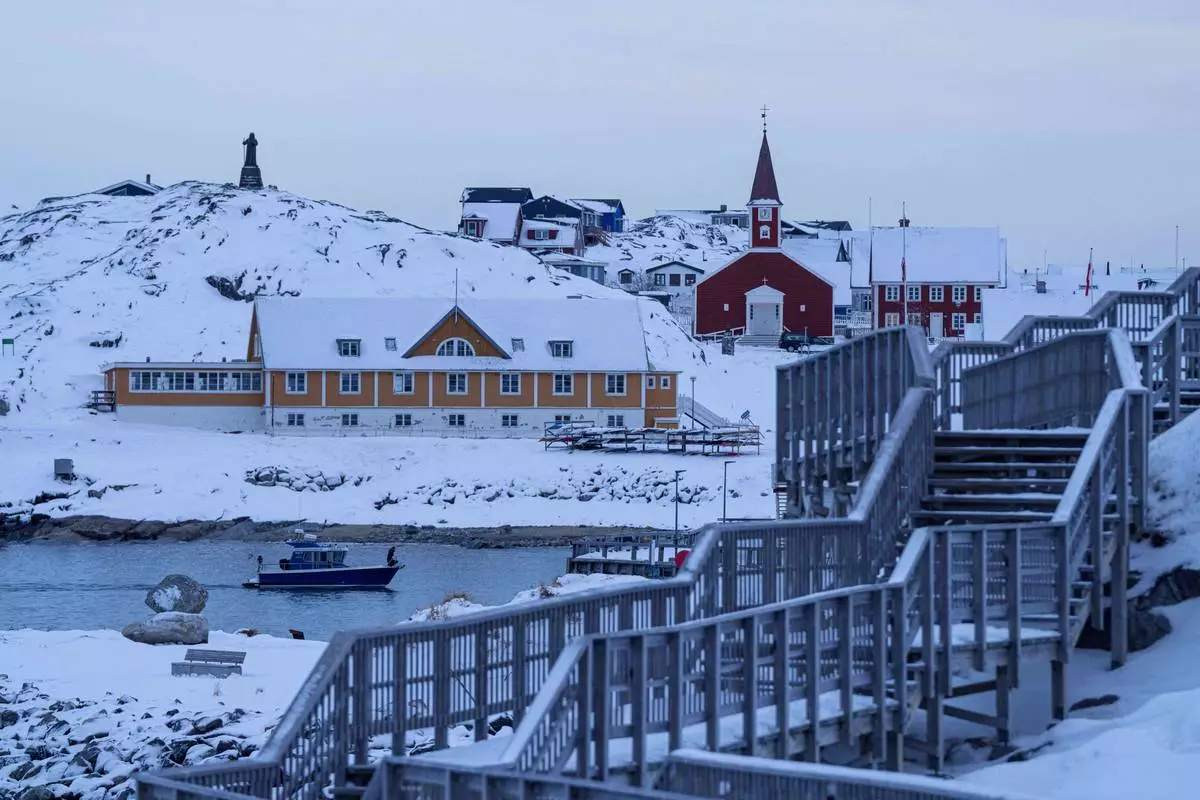
A boat travels at the sea inlet in Nuuk, Greenland, on Tuesday, Jan. 13, 2026. (AP Photo/Evgeniy Maloletka)
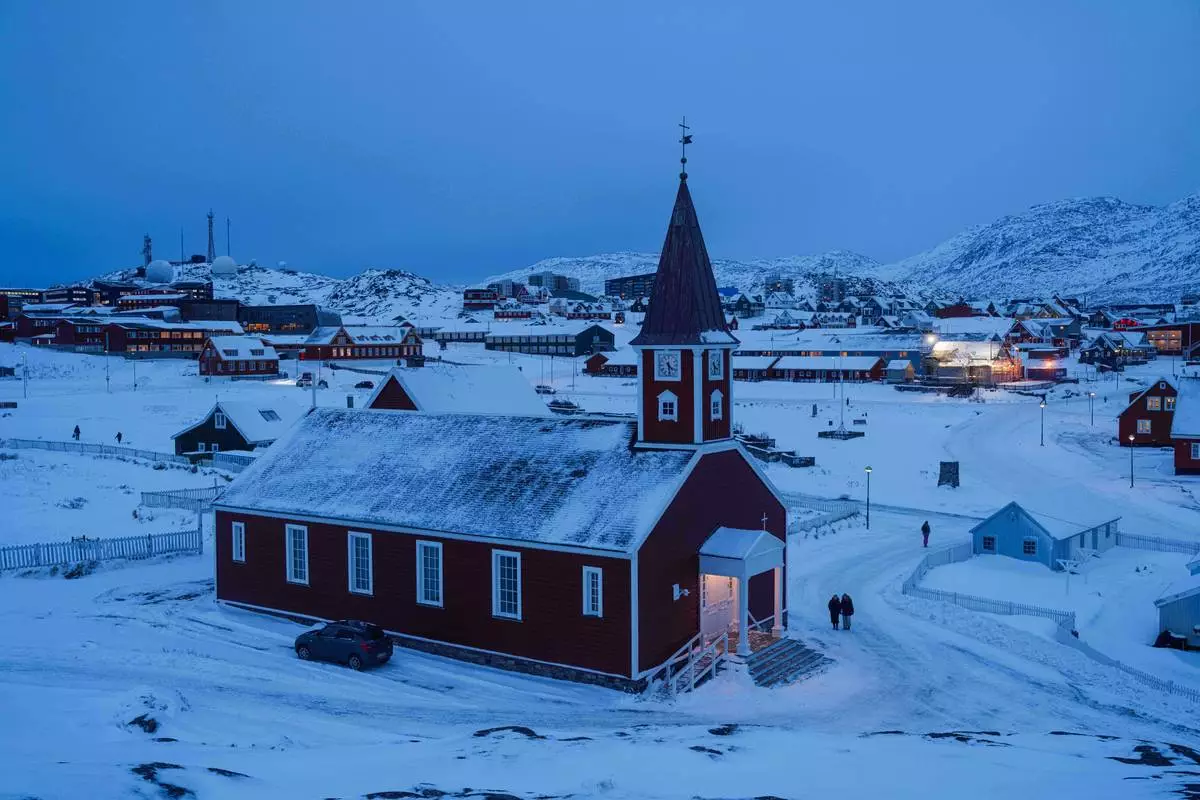
People walk near the church in Nuuk, Greenland, on Tuesday, Jan. 13, 2026. (AP Photo/Evgeniy Maloletka)
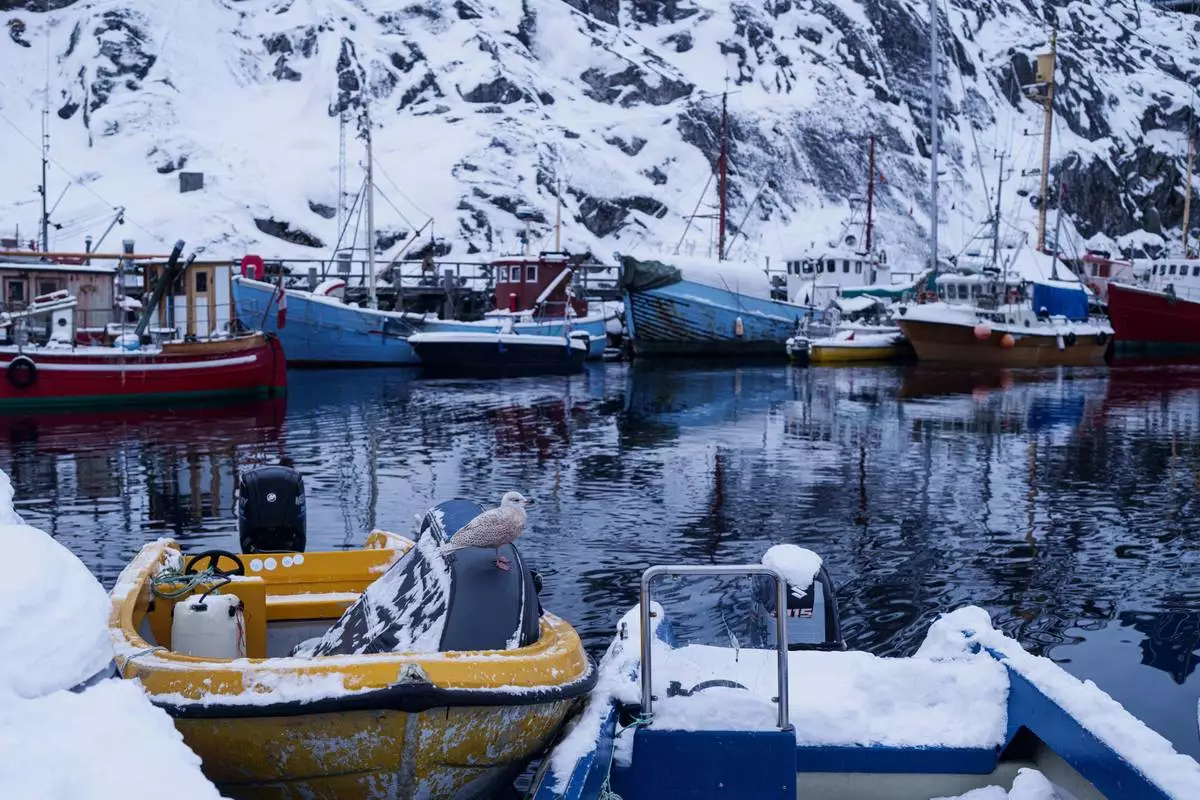
A bird stands on a boat at the harbour of Nuuk, Greenland, on Tuesday, Jan. 13, 2026. (AP Photo/Evgeniy Maloletka)
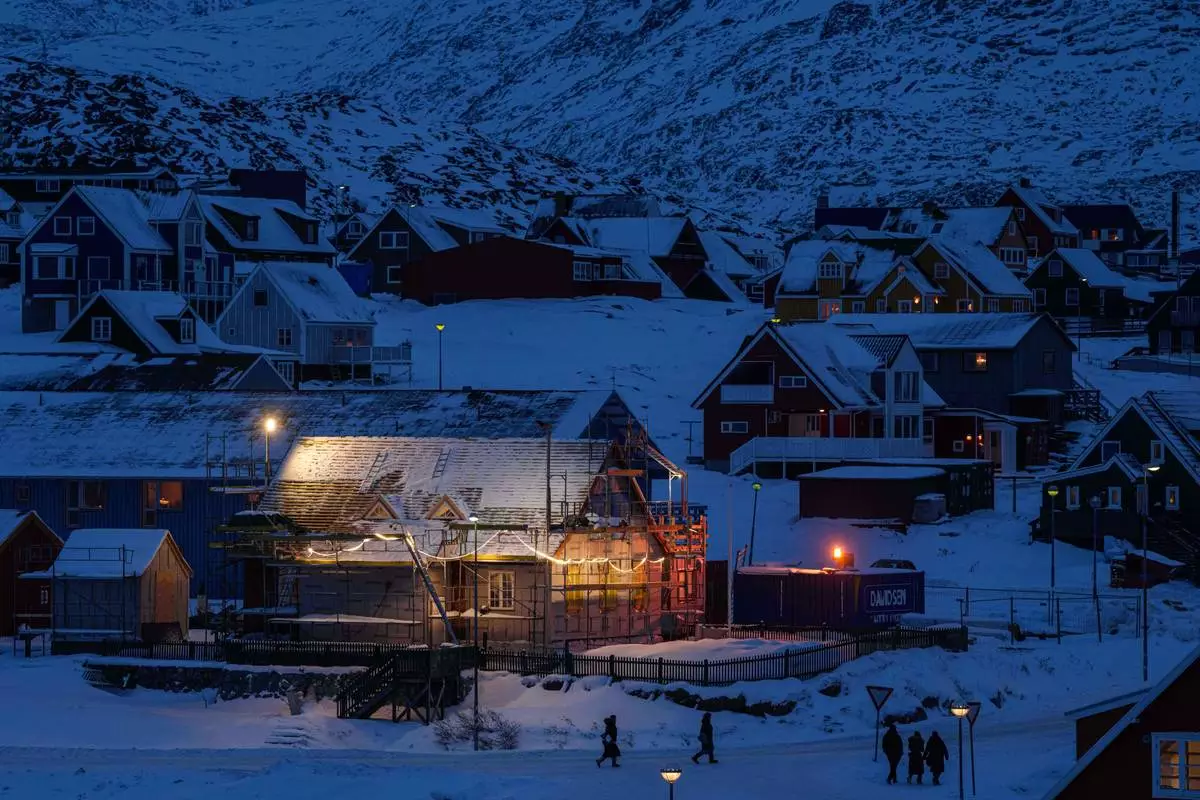
People walk along a street in downtown of Nuuk, Greenland, on Tuesday, Jan. 13, 2026. (AP Photo/Evgeniy Maloletka)











